Ensuring support for the injured and the families left behind
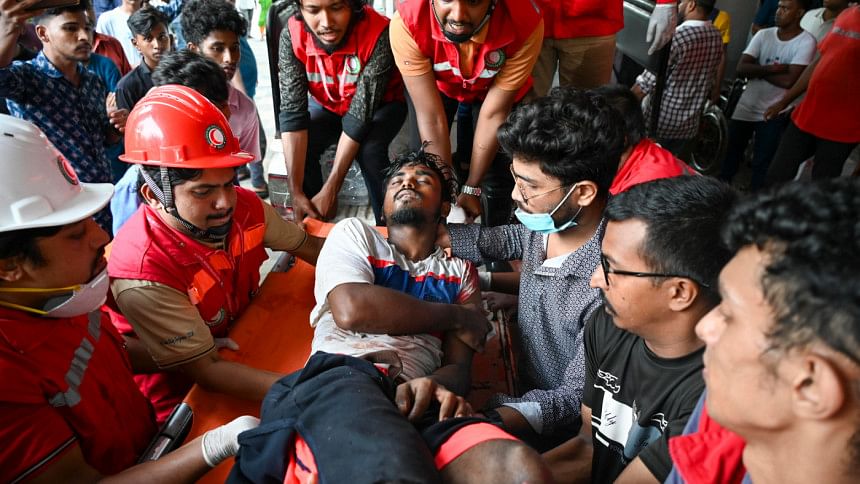
Nearly a month after taking office, the Chief Adviser Dr Muhammad Yunus announced through a televised speech on September 11 that the families of the martyrs, as well as the students and citizens injured during the July uprising, will receive rehabilitation, and their treatment costs will be covered.
Timely medical treatment can mean the difference between life and death, and whether an individual suffers permanent disability. We have seen reports of protesters succumbing to injuries after fighting for their lives for days. This leads us to wonder whether the lack of financial support for treatment contributed to these tragic outcomes. In several instances, individuals have suffered permanent disabilities, such as loss of vision or the need for amputations, owing to not being able to afford necessary medical procedures on time.
There are heartbreaking stories such as the selling of an infant for Tk 37,000 to cover the hospital bills of a father injured during the protests. Another instance is that of Arif, who was shot during the protests and had to sell his wife's jewelry to pay for his treatment. These are just two examples of many untold stories. When protestors took to the streets, there were many such sacrifices by those who risked their lives for a new Bangladesh.
The interim government faced criticism for planning a memorial event for the martyrs on September 14, which was later postponed. Critics, including the Private University Students Alliance of Bangladesh (PUSAB), suggested on their Facebook page that the Tk 5 crore allocated for the event could instead be used to provide financial assistance to 500 families of the martyrs, with a cap of Tk one lakh for each family.
In these volatile situations, determining priorities can be challenging. The new government has not had an easy journey so far, facing one crisis after another from day one. Various groups and entities have approached the government with their own demands as was seen with the HSC cancellation and Ansar protests. After, unprecedented flooding caused a devastating impact on more than five million people directly, as estimated by BRAC.
Perhaps as a result of such crises, no concrete steps were taken at the national level until recently for those who risked their lives and continue to endure immense pain after being shot and grievously injured. Additionally, the families of the martyrs are currently facing the dual burden of emotional agony from losing their loved ones and financial hardship, as many of the martyrs were the breadwinners of their family. This is leading to a new segment of the population falling into poverty, with the cost of treatment of injured family members being another facrtor.
There will be times when the government makes mistakes, and the people will hold the government accountable for its actions. Democracy is about creating a space for people to speak and reminding the government that it is there to serve the people and the country. The government must not feel entitled or disassociate itself from the people by making unilateral decisions that do not show an understanding of the ground reality or does not take public opinion into account. It is refreshing that a space has been created enabling course correction or nudging the government to focus on the necessary areas.
The fact that the government has now finally addressed the situation by putting the memorial event for the martyrs on hold until a complete list of the injured and martyred can be made comes as a welcome step. The announcement by the chief adviser himself that the treatment for those who were injured will be covered, alongside providing support to the families of the martyrs, is commendable. What could be added to the list is a stipend determined by the severity of the injury, and the status of the injured individual in terms of economic contribution to the family, to safeguard them from economic hardship.
The government has established the July Martyrs' Memorial Foundation to provide financial and humanitarian assistance to the families of those injured and killed during the protests. The foundation is open to accepting donations, grants, and aid from citizens, organisations, and the diaspora. At this time, it is important that we collectively come forward and do our part to help those in need. Given that the chairman of the foundation is the chief adviser himself, it instills trust that the effort is headed in the right direction.
However, transparency is imperative, and it is important that the processes are made public. While the announcement has been made that the government will now take up the role of providing for the injured and also the families of the injured and martyrs, it is crucial to know how soon the project can be implemented as time is of the essence. It must be ensured that a fast-track system is followed to make the process smooth, as we know how bureaucratic and full of red tape the existing system can be. To honour the sacrifices made, swift action is vital.
Mohammed Ihtesham Hassan is currently working as a research associate at Power and Participation Centre (PPRC).
Views expressed in this article are the author's own.
Follow The Daily Star Opinion on Facebook for the latest opinions, commentaries and analyses by experts and professionals. To contribute your article or letter to The Daily Star Opinion, see our guidelines for submission.

 For all latest news, follow The Daily Star's Google News channel.
For all latest news, follow The Daily Star's Google News channel. 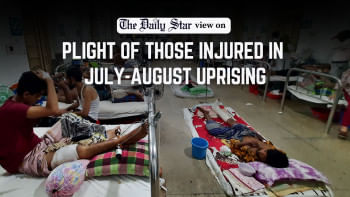
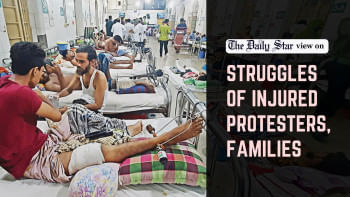


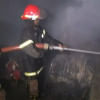
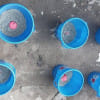

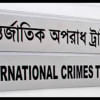
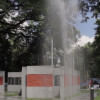


Comments